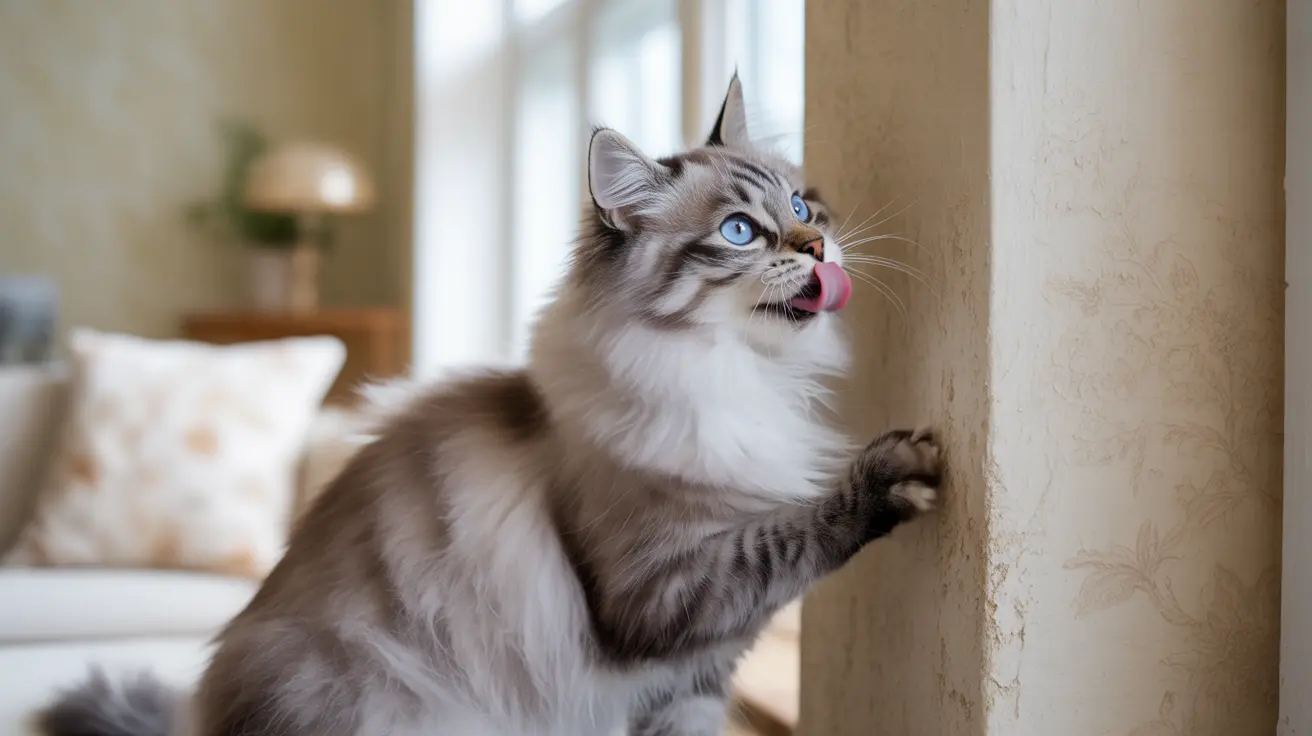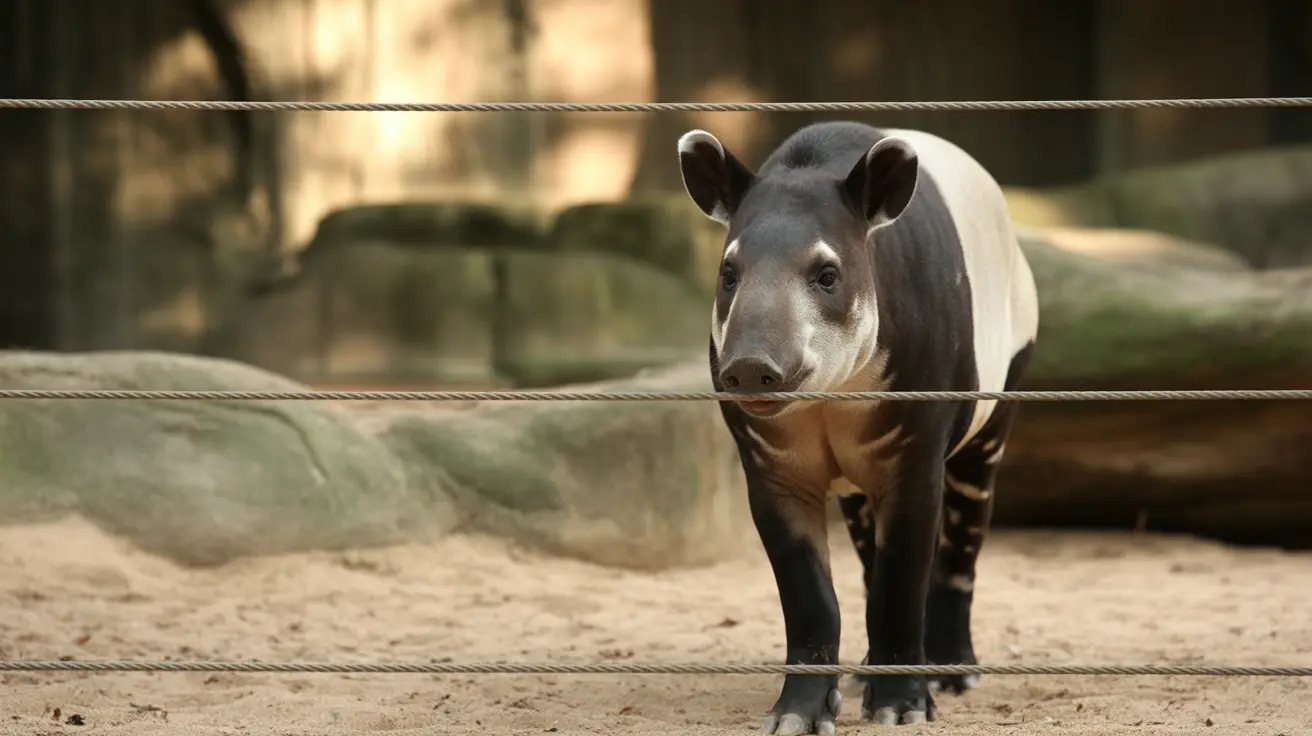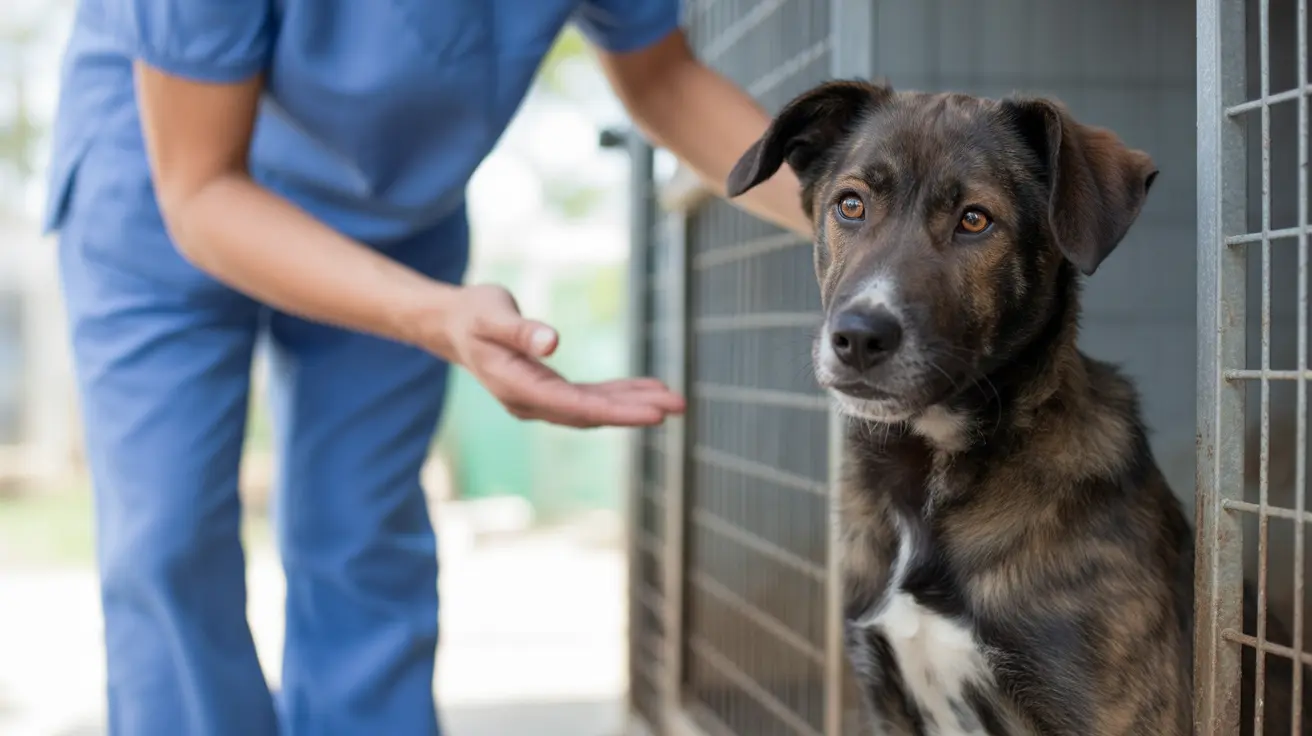If you've caught your feline friend engaging in the peculiar behavior of wall licking, you're not alone. Many cat owners find themselves puzzled by this unusual habit, wondering what drives their pets to lick seemingly unappetizing surfaces. Understanding why cats lick walls is crucial for ensuring your pet's health and well-being, as this behavior can range from harmless exploration to a sign of underlying issues.
In this comprehensive guide, we'll explore the various reasons behind wall-licking behavior in cats and help you determine whether it's cause for concern or simply another quirky feline trait.
Common Reasons for Wall Licking Behavior
Natural Curiosity and Sensory Exploration
Cats are naturally curious creatures that explore their environment through various senses, including taste. Wall licking may simply be your cat's way of investigating interesting textures or subtle scents that human noses can't detect. Many walls have slight variations in texture or temperature that cats find intriguing.
Hidden Attractants on Surfaces
Walls can harbor invisible attractions for cats, including:
- Condensation or moisture
- Mineral deposits in plaster
- Residual cooking oils or food particles
- Salt from human hand prints
- Cleaning product residues
Medical and Nutritional Considerations
Potential Dietary Deficiencies
Sometimes, wall licking can indicate nutritional gaps in your cat's diet. Cats may seek out minerals or other nutrients they're lacking by licking walls, especially if the surfaces contain minerals like calcium in plaster or drywall.
Underlying Health Conditions
More serious medical issues that might trigger wall licking include:
- Anemia
- Gastrointestinal disorders
- Liver disease
- Neurological conditions
Behavioral and Environmental Factors
Stress and Anxiety
Cats may develop wall-licking habits as a coping mechanism for stress or anxiety. Changes in the household, new pets, or disruptions to routine can trigger this behavior. Creating a stable, enriching environment can help reduce stress-related wall licking.
Boredom and Lack of Stimulation
Indoor cats especially may turn to wall licking out of boredom. Ensuring your cat has plenty of environmental enrichment through toys, climbing spaces, and interactive play sessions can help prevent this behavior.
When to Be Concerned
While occasional wall licking might not be cause for alarm, certain signs warrant veterinary attention:
- Compulsive or excessive licking
- Accompanying symptoms like lethargy or vomiting
- Changes in appetite or weight
- Signs of anxiety or distress
Prevention and Management Strategies
To address wall-licking behavior:
- Ensure a complete and balanced diet
- Provide fresh water in multiple locations
- Create an enriching environment
- Address potential stressors
- Clean walls regularly to remove attractive residues
- Consider pet-safe deterrent sprays if necessary
Frequently Asked Questions
Why is my cat licking the walls and what does it mean?
Cats may lick walls due to curiosity, nutritional deficiencies, stress, or medical conditions. The behavior can range from normal exploration to a sign of underlying health issues requiring veterinary attention.
Can nutritional deficiencies cause my cat to lick the walls?
Yes, cats may lick walls when seeking minerals or nutrients missing from their diet. This behavior often indicates deficiencies in essential nutrients like calcium, iron, or other minerals.
How does stress or boredom influence my cat's wall-licking behavior?
Stress and boredom can lead to compulsive behaviors like wall licking. Cats may use this behavior as a coping mechanism or self-soothing technique when feeling anxious or understimulated.
Should I be worried if my cat is licking walls frequently or compulsively?
Frequent or compulsive wall licking warrants veterinary attention, especially if accompanied by other unusual symptoms or behavioral changes. It could indicate underlying health issues or psychological distress.
What can I do to stop my cat from licking walls safely and effectively?
Address the behavior by ensuring proper nutrition, reducing stress, providing environmental enrichment, and consulting with your veterinarian to rule out medical issues. Never punish your cat for wall licking, as this may increase anxiety.






